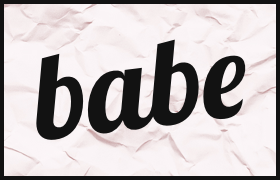
In defense of the Beyoncés of the world
You can be your own feminist
To start this discussion off like any clichéd toast or letter of recommendation, Merriam-Webster defines “feminism” as “the theory of the political, economic, and social equality of the sexes” and “organized activity on behalf of women’s rights and interests.”
With this in mind, it should seem like common sense to believe that there are multiple ways—political ways, economic ways, social ways, other organized activity-based ways, et cetera—of practicing feminism. But, as is often the way in our hypercritical society, there are plenty of examples of famous self-proclaimed feminists being torn down for not practicing feminism “correctly.”
What’s the deal here?
A prime example of this behavior is the negative response some had to Beyoncé’s most recent album, Lemonade. Rapper Azealia Banks reportedly tweeted in response to Lemonade’s release that, “This heartbroken black female narrative you keep trying to push is the Antithesis of what feminism is…You been singing about this n**** for years and he still playing you. That’s not strength that’s stupidity.”
Additionally, famed feminist Bell Hooks wrote that, “Ultimately Lemonade glamorizes a world of gendered cultural paradox and contradiction. It does not resolve…To truly be free, we must choose beyond simply surviving adversity, we must dare to create lives of sustained optimal well-being and joy. In that world, the making and drinking of lemonade will be a fresh and zestful delight, a real life mixture of the bitter and the sweet, and not a measure of our capacity to endure pain, but rather a celebration of our moving beyond pain.”
Lemonade was, indeed, the story of a woman’s journey through a period of terrible heartbreak, betrayal, anger, and grief. But it was also a story of an empowered woman’s decision to forgive the man she loved. Perhaps it was primarily for the sake of her young child that she chose to walk the path to forgiveness. Perhaps this album was simply this particular woman’s way of working through and eventually moving beyond the pain of her experience so that she could return, as much as possible, to the happiness she once had with her husband.
Who can rightly say but Beyoncé?
Who can truly deem her a “bad feminist” because she chose to deal with her anguish through music and ultimately decided to work on her marriage and stay with her husband?
Although a given practicing feminist might not agree with Beyoncé’s approach to her discovery of Jay-Z’s unfaithfulness, it is within no one’s right to deem her behavior as “anti-feminist” merely because she, as an empowered woman, chose forgiveness over leaving her marriage.
Beyoncé’s brand of feminism was also called into question when her self-titled album was released in 2013. However, in this instance, it was not behavior as the “heartbroken victim” that was criticized, like in Lemonade—it was instead the overt sexual content of the lyrics and the visual album that coincided with the music. In an NPR article documenting various feminists’ responses to herself-titled album ‘Beyoncé’, filmmaker Tanya Steele was reported saying, “I saw her in pornographic poses…I couldn’t understand what black feminists were looking at.” NPR then wrote that, “She [Steele] says for her it was just another tired example of a woman performing for men.”
Similarly, Jezebel founder Anna Holmes said in the article, “We don’t often see women in bodysuits writhing around on cars except when — I don’t know, it’s Maxim magazine, so it does feel like a performance for the benefit of men.”
Though I’m not personally the most overtly sexual of feminists, I firmly believe in a woman’s right to dress and behave however she pleases. In her self-titled album, Beyoncé fully embraced her womanhood and her identity as a sexual being, but it was not necessarily meant to pleasure her male audience. Perhaps this was Beyoncé’s way of telling women it’s okay to like sex, but it’s also okay to want to look and feel sexy without the endgame always being male pleasure, and that a woman can be a confident, sexual being while also being strong and self-reliant.
Who is expert enough to define how Beyoncé wants to express her brand of feminism but Beyoncé?
In these two albums alone, Beyoncé proves there is no “correct” way to practice feminism — she demonstrates her ability to own her sexuality in ‘Beyoncé’, and then she demonstrates her ability to own the full spectrum of her emotions in Lemonade. Would you look at that. Those are two different forms of female empowerment, and they’re both being executed by one woman.
So to all of you beautiful, badass Beyoncés out there: be your own feminist. (Be-you-ncé. Too much?)
You can be a feminist who loves her body and enjoys showing it off (not for men’s pleasure, but for herself, for femininity’s sake). You can be a feminist who chooses to be conservative with her appearance because that’s what makes her the most comfortable in her own skin. You can be a feminist who shaves or doesn’t shave, wears bras or frees the nipple, cakes on makeup or goes out bare-faced. You can be a feminist who focuses mainly on issues of gender equality in the workplace, in the LGBTQ+ community, in healthcare, in your own home, et cetera. You can be a feminist who’s tough as nails and doesn’t take shit from anyone, or you can be a feminist who isn’t afraid to cry and embraces her own capacity for empathy and forgiveness. You can be both. You can be any number of these things.
Don’t allow others to make you feel like an “anti-feminist” just because they don’t agree with how you practice feminism. Dictionary definition aside, feminism ought to be, at its core, about women building one another up and creating a community of love and support. Attaining gender equality is crucial, but the journey to it will be infinitely more difficult with women tearing each other down along the way.
